IMDEA Networks

Event Category: In-house Presentation
Key Issues of Peer-to-Peer Mechanisms as Future Internet Communications
Ralf Steinmetz is one of the world experts in multimedia and P2P applications, is the author of one of the most referenced books in the area, and he has received the ACM Multimedia Award.
Since early 1996 Ralf Steinmetz has been a professor at the dept. of Electrical Engineering and Information Technology as well as at the dept. of Computer Science of the Darmstadt University of Technology, Germany. There he is in charge of a chair position as managing director of the "Multimedia Communications Lab". From late 1996 until late 2001 he directed the GMD/Fraunhofer Integrated Publications and Information Institute. In 1999 he founded the Hessian Telemedia Technology Competence Center (httc e.V.). On whose board he has since served as chair. He is also one of the directors of the Information Transfer Office at the university. From 2002 to 2004 as dean he managed the department.
Read more arrow_right_altDistributed and Collaborative Hapto-Virtual Environments and Applications: Effects of Networking Impairments on Quality of Experience
Multimedia Communications, involving traditional media such as audio, video, text, 2D graphics, have become parts of everyday e-life. New digitalmedia, such as Virtual Reality and Haptics, have now added new dimensions to multimedia tele-collaboration. This presentation will introduce basic issues on Distributed and Collaborative Virtual Environments, where the feeling of touch (haptics) and its transmission over networks is becoming essential. Various applications will be described ranging from industrial training to e-commerce to medical education. Effects of networking =93quality of experience on collaborative hapto-virtual applications will be discussed and methods for delay and jitter compensation will be described.
Read more arrow_right_altSeminar-IP Autoconfiguration for Vehicular Networks
More information about Marco Gramaglia The seminar will be conducted in English
Read more arrow_right_altWhat do opportunism, data mining and coordination have to do with system-level optimization of wireless networks?
We present a system-level framework to mitigate interference using coarse grained coordination of transmissions across base stations. Our approach is based on collecting and mining measured data capturing a user population's diversity in sensitivity to interference. The talk introduces the abstractions and optimization framework we have devised to enable this type of coordination. The talk is in two parts addressing what we deem to be key areas of inquiry.
Read more arrow_right_altxIP - eXtending IPv4 address space
Instructor:
Lugar:
Fecha: 12th May, 2009, 10:00 – 11:00
Organización:
Read more arrow_right_alt
A Control Theoretic Framework for Performance Optimization of IEEE 802.11 Networks
More information about Paul Patras The seminar will be conducted in English
Read more arrow_right_altFrom Networking Research to Hapto-Virtual Multimedia Communications
Multimedia Communications, involving traditional “media” such as audio, video, text, 2D graphics, have become parts of everyday e-life. New digital media, such as Virtual Reality and Haptics, have now added new dimensions to multimedia tele-collaboration. This presentation will introduce basic issues on Distributed and Collaborative Virtual Environments, where the feeling of “touch” (haptics) and its transmission over networks is becoming essential. Various applications will be described ranging from industrial training to e-commerce to medical education, and the current research at the DISCOVER research lab, Univ. of Ottawa will be outlined.
Read more arrow_right_altMultipath TCP
Normal TCP/IP operation is for the routing system to select a best path that remains stable for some time, and for TCP to adjust to the properties of this path to optimize throughput. A multipath TCP would be able to either use capacity on multiple paths, or dynamically find the best performing path, and therefore reach higher throughput. By adapting to the properties of several paths through the usual congestion control algorithms, a multipath TCP shifts its traffic to less congested paths, leaving more capacity available for traffic that can't move to another path on more congested paths. And when a path fails, this can be detected and worked around by TCP much more quickly than by waiting for the routing system to repair the failure.
Read more arrow_right_altISP-friendly Swarm-based P2P streaming
Existing Swarm-based Peer-to-Peer Streaming (SPS) applications rely on a randomly connected overlays among peers, which tend to generate a significant amount of costly inter-ISP traffic. To reduce such traffic, localization of overlay connectivity within each ISP has received a great deal of attention as a promising approach for reducing the volume of inter-ISP traffic.
Read more arrow_right_alt



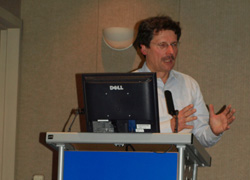
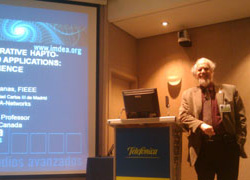


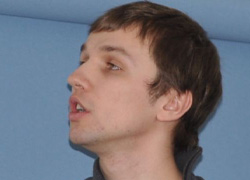
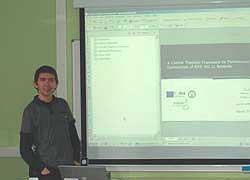
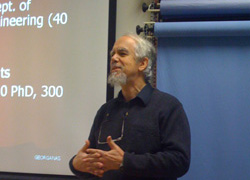


Recent Comments